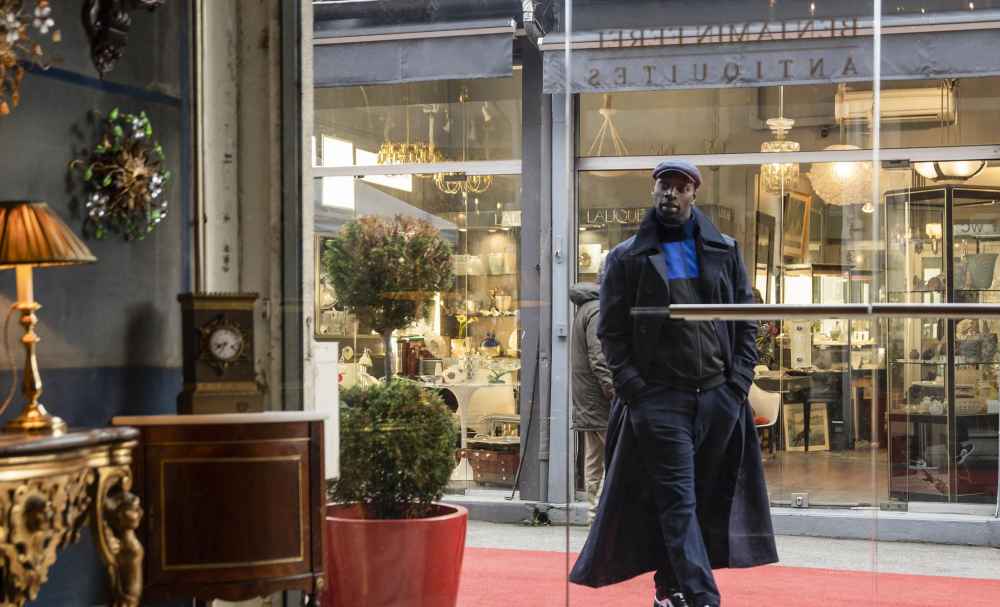By Victor Bennett, Film & TV Subeditor
Part of Lupin's success is owed to French star Omar Sy, who plays the protagonist Assane Diop. Whilst in the first two series viewers were left enchanted by Diop’s charisma and finesse as the ‘gentleman thief’, in season three we see an enriched perspective of the defining troubles of Diop’s past. Crime, family issues and a blossoming romance prove to stain any chance Diop had at settling down. More importantly, however, this revelation of his past only strengthens his dynamic image as the ‘anti-hero’, one with deep-cutting problems and one with a lot of skeletons in his closet.
Season three picks up from a story of revenge, where Diop devises a daring plan to avenge his late father who was framed by the aristocratic snob, Pellegrini, for stealing a pearl necklace. After landing Pellegrini in jail, however, Diop is left wholly unsatisfied as he is forced to part ways with his wife, Claire, and son, Raul. ‘Daddy issues’ soon transpire into ‘mommy issues’ in season three as we see Diop’s mother, Mariama, kidnapped by a ghost of Diop’s past. Tasked with an odyssey ahead of him, Diop must navigate various conditions to buy his mother’s freedom.
Whilst season two was defined by the luxury of revenge, season three is defined by the imperative of safety. A narrative which screenwriter George Kay employed to reach new levels of nail-biting suspense.
After re-discovering his mother's presence in his life, Diop is driven not only by a son’s unconditional love for his mother but also by a son’s love of sweet nostalgia. His mother represents all existing ties he had to Senegal, and all the ties he had to his heritage. Memories of his mother singing endearing nursery rhymes uncover a soft spot in the multi-coloured identity of Lupin or Diop. In what has come to be known as ‘Françafrique’, France’s post-colonial ties to Senegal and the consequential movement of people is a refreshing addition to the colour of Diop’s identity.

Diop’s stunts, costumes, cons and gadgets have only gotten grander and more elaborate in season three. ‘Money’, Diop says, ‘is no issue’, and clearly isn’t. 3-D printers and voice distorters, secret doors and magical hands, season three definitely plays into the magical and mystical element that Maurice Leblanc inaugurated in the original tales of ‘Arsène Lupin’.
Whilst the fundamental ideas of mystique and showmanship run constant, the remake is in no way confined to Leblanc’s dated image of Lupin. Quite the contrary, Omar Sy depicts a decolonised, modern image of the gentlemanly thief. In Diop’s final act in season three, he chooses not to use high-tech disguises to conceal his identity but embraces his true colours as Lupin. Whilst in the novels Lupin is described wearing a classic dark suit with a gentlemanly monocle, Diop in season three wears a flashy purple suit in a liberating declaration of ‘this is me’. Similarly, Diop’s love of streetwear (and Jordans in particular) bestows upon him the position of one of the people, making his crimes that bit more palatable.

In so far as the image of Lupin has kept up with cosmopolitanism, the position of women in the new season is perhaps confined to the age of romanticism. The three women of worthy note in the new season are Claire, Diop’s wife, Mariama, Diop’s mother, and Lieutenant Sofia Belkacem, the policewoman tasked with catching Diop.
Like a damsel in distress, the narrative of Mariama is one of the victim. As the ransom, her life is dependent upon the actions of the protagonist and reduced to that of a valuable object. Whilst we see her gaining more agency in the latter stages of the series, her agency is limited and, again, is merely used as a tool in Diop’s ostentatious toolbox.
Claire’s position is more prevalent but again limited in scope. Faced with her husband’s death, Claire is late to realise that her son’s basketball coach is not who he says he is. Despite her son’s affirmations that Diop is alive, Claire largely rejects these calls and is presented to the viewer as naïve and a victim of dramatic irony.

What limited role Lieutenant Belkacem plays is overshadowed by her male colleague, Guédira, who catches onto deciphering Lupin’s codes to much greater effect. Similar to Claire, therefore, Belkacem is naïve and neglects the calls of those around her.
Could this criticism be a testament to Diop’s unwavering charm? Diop’s ability to know which buttons to press and when to press them feeds into his magical allure, leaving those closest to him enchanted and thereafter disposable.
Featured Image: IMDb
Will you be watching the latest season of Lupin?








